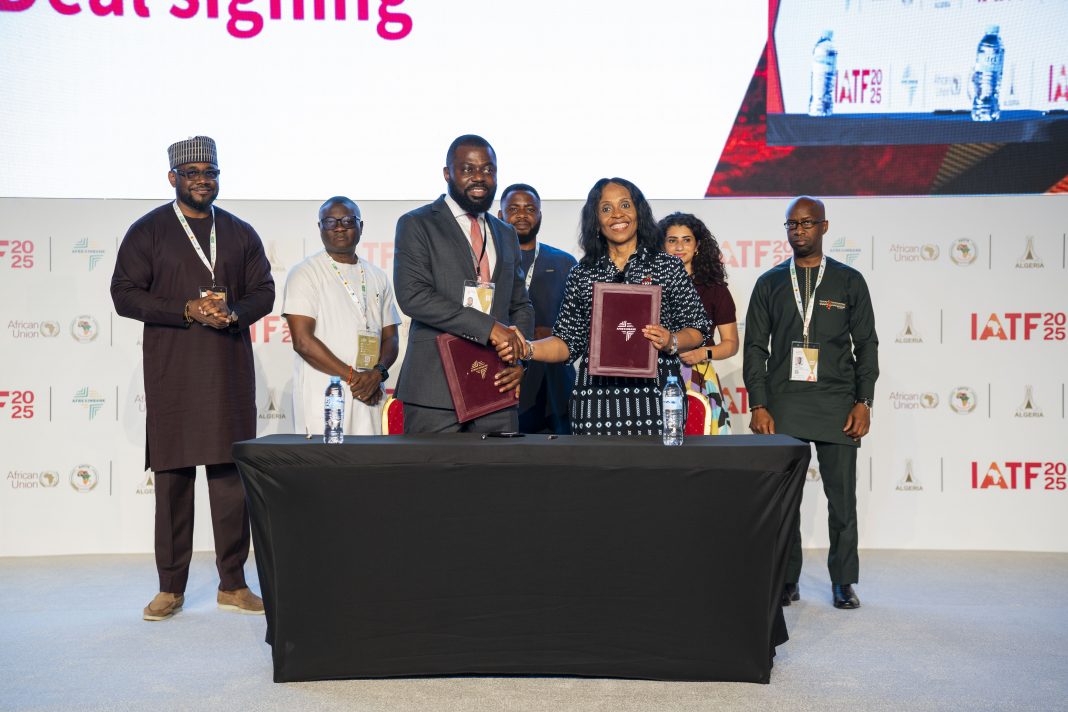By Job Okoth
Nigeria’s smallholder farmers could soon see a massive boost in financing and technology access after the Bank of Agriculture (BOA) and African Export-Import Bank (Afreximbank) signed a landmark agreement worth up to US$1 billion at the recently concluded Intra-African Trade Fair (IATF) 2025 in Algiers, Algeria.
The deal aims to transform the country’s agricultural sector by unlocking affordable credit, mechanisation support, and structured market access for farmers who currently produce over 90 percent of Nigeria’s food yet face persistent financing gaps.
“This is more than just a fund; it is a bold commitment to ensuring our nation’s food security,” said Ayo Sotinrin, Managing Director and CEO of BOA. “By joining forces with Afreximbank, we are unlocking opportunities for smallholder farmers to move beyond subsistence farming into sustainable and profitable agribusiness.”
The agreement builds on President Bola Ahmed Tinubu’s recent approval of the National Food Security Fund, a revolving matching fund run in collaboration with state governments and designed to close systemic financial gaps in the sector.
Under the partnership, Afreximbank will provide guarantees for loans disbursed by BOA, reducing credit risk and enabling lending to previously excluded farmers. The deal also includes a currency swap mechanism to convert dollar-denominated funds into local currency, shielding farmers from exchange rate volatility while allowing BOA to access international capital efficiently.
“Smallholder farmers are an essential part of the agricultural value chain and represent important contributors to the growth of the agro-industry sector,” said Kanayo Awani, Afreximbank’s Executive Vice President for Intra-African Trade and Export Development. “This fund will provide critical liquidity and ease the hardship faced by smallholder farmers by extending crucial financing access to the previously underserved group.”
The agreement is expected to catalyse productivity increases, encourage value addition through processing, and strengthen Nigeria’s participation in continental markets under the African Continental Free Trade Area (AfCFTA).
The signing took place on the sidelines of the fourth Intra-African Trade Fair, which recorded more than 112,000 participants online and in person, over 2,100 exhibitors, and trade deals exceeding US$48 billion. Twenty heads of state, ministers, senior government officials, and business leaders from 132 countries attended the event, making it the largest gathering of its kind on the continent this year.
With Nigeria’s agriculture sector employing millions and serving as the backbone of food security, the agreement is seen as a critical step toward achieving national food sovereignty and empowering rural communities.






